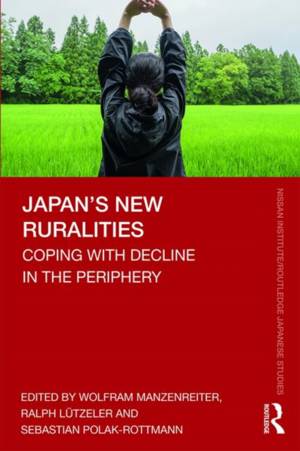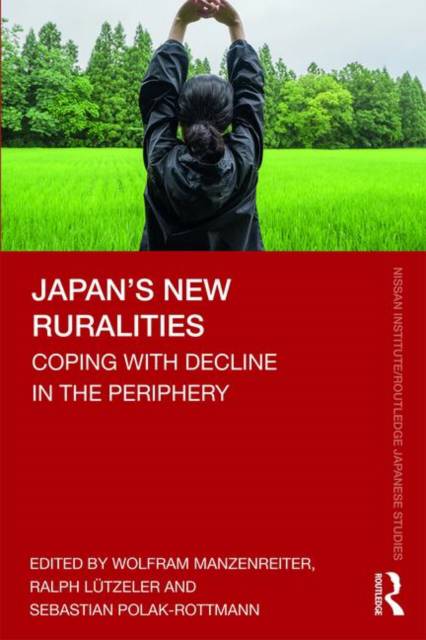
- Retrait gratuit dans votre magasin Club
- 7.000.000 titres dans notre catalogue
- Payer en toute sécurité
- Toujours un magasin près de chez vous
- Retrait gratuit dans votre magasin Club
- 7.000.0000 titres dans notre catalogue
- Payer en toute sécurité
- Toujours un magasin près de chez vous
Japan's New Ruralities
Coping with Decline in the Periphery
Description
Seeking to challenge negative perceptions within Japanese media and politics on the future of the countryside, the contributors to this book present a counterargument to the inevitable demise of rural society.
Contrary to the dominant argument, which holds outmigration and demographic hyper-aging as primarily responsible for rural decline, this book highlights the spatial dimension of power differences behind uneven development in contemporary Japan. Including many fi eldwork-based case studies, the chapters discuss topics such as corporate farming, local energy systems and public healthcare, examining the constraints and possibilities of rural self-determination under the centripetal impact of forces located both in and outside of the country. Focusing on asymmetries of power to explore regional autonomy and heteronomy, it also examines "peripheralization" and the "global countryside," two recent theoretical contributions to the fi eld, as a common framework.
Japan's New Ruralities addresses the complexity of rural decline in the context of debates on globalization and power differences. As such, it will be of interest to students and scholars of sociology, anthropology, human geography and politics, as well as Japanese Studies.
Spécifications
Parties prenantes
- Editeur:
Contenu
- Nombre de pages :
- 312
- Langue:
- Anglais
- Collection :
Caractéristiques
- EAN:
- 9780367354183
- Date de parution :
- 20-02-20
- Format:
- Livre broché
- Format numérique:
- Trade paperback (VS)
- Dimensions :
- 155 mm x 231 mm
- Poids :
- 476 g

Les avis
Nous publions uniquement les avis qui respectent les conditions requises. Consultez nos conditions pour les avis.





